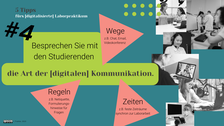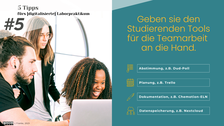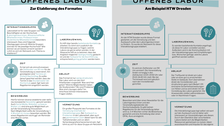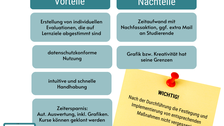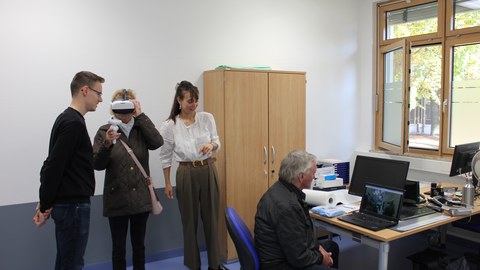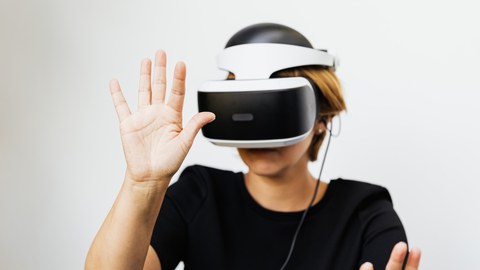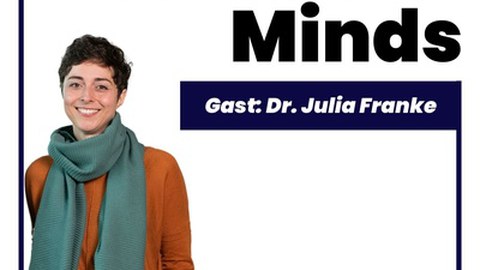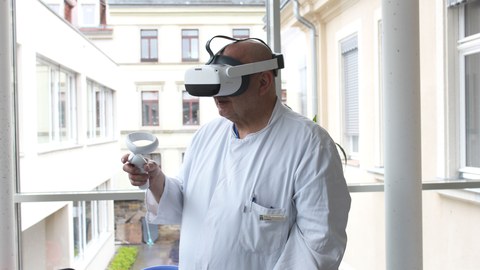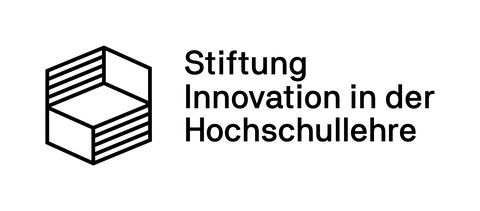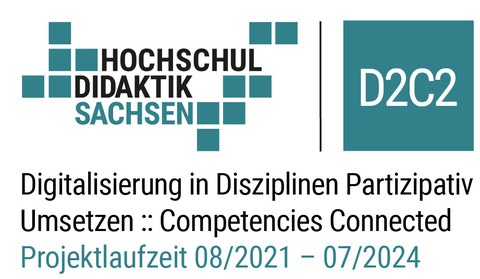Open Lab
Neben drei weiteren Schwerpunkten fokussiert das sachsenweite Verbundprojekt D2C2 die (Teil-)Digitalisierung der Lehre in Werkstätten und Laboren. Die Herausforderungen und Chancen sind dabei oft so fachspezifisch, wie jede Werkstatt und jedes Labor einzigartig sind. Unter dem Überbegriff OPEN LAB bieten wir Lehrenden und Studierenden ein spezifisch auf Werkstätten und Labore zugeschnittenes Angebot.
Auf dieser Seite finden Sie Informationen zu folgenden Angeboten:
Inhaltsverzeichnis
Veranstaltungen
Kurz und auf den Punkt: Wir setzen auf kurze, ein- bis zweistündige Formate um Ihnen im vollgepackten Hochschulalltag eine Teilnahme zu ermöglichen. Zudem stehen wir Ihnen für individuelle Fragen unter zur Verfügung.
XR-Community
Als dritter Lernort können XR-Umgebungen genutzt werden, um bereits vor dem ersten Praxisversuch eine Verbindung zwischen Theorie und Praxis herzustellen. Studierende können so Kompetenzen in unterschiedlichen Berufs- und Forschungsumgebungen weiterentwickeln, ohne dabei die Konsequenzen eventueller Sicherheits- oder Kostenrisiken tragen zu müssen.
Um Ressourcen zu bündeln und bestehende Expertise im Bereich Extended Reality (XR) sichtbar zu machen, initiierten wir im Frühjahr 2023 eine XR-Community. Seither treffen sich in Dresden im Rahmen der Community interessierte Lehrende und Forschende jeden zweiten Monat, um Projekte vorzustellen, neuste Entwicklungen im Bereich Extended Reality kennenzulernen und mögliche Kooperationen zu diskutieren.
Nächstes Treffen: 25. September, 14:30-16:00 Uhr / Ort: Open Science Lab 1, SLUB (Zellescher Werg 25, 01217 Dresden) und Online (siehe OPAL)
Möchten Sie mehr über die Community erfahren und an einem der nächsten Treffen teilnehmen? Über eine unverbindliche Anmeldung im OPAL Kurs der Community erhalten Sie regelmäßige Einladungen und Updates zu den neuesten Aktivitäten.
Werkstatt- und Laborpause (online)
Im Juli 2025 fand die letzte Werkstatt- und Laborpause statt. Wir danken Ihnen für Ihr Interesse, den wertvollen Input und den vielseitigen Austausch über die vergangenen 3 Jahre. Insgesamt durften wir über 600 Teilnehmende in der Werkstatt- und Laborpause begrüßen. Wir wünschen allen Lehrenden und Studierenden in den Laboren weiterhin viel Freude beim Entdecken und Gestalten – möge die Neugier stets größer sein als jede Hürde.
Offenes Labor
Jedes Labor ist einzigartig. Diese Tatsachse macht es oftmals schwierig, pauschale Aussagen über "die Lehre im Labor" zu treffen. Im Rahmen des Offenen Labors erhalten Sie einen Einblick in die Vielfältigkeit der sächsischen Laborarbeit. Lernen Sie vor Ort die Räumlichkeiten kennen und treten Sie mit den zuständigen Mitarbeiter:innen in den Austausch.
Nächster Termin: tba
Die Anmeldung erfolgt in OPAL (Login erforderlich) oder per Email an Freya Geishecker
Austausch zu ELN im Netzwerk Ingenieurwissenschaften
Electronic Laboratory Notebooks (ELN) gewinnen in der ingenieurwissenschaftlichen Arbeit, Forschung und Lehre zunehmend an Bedeutung – zur strukturierten Dokumentation, besseren Nachvollziehbarkeit, für kollaboratives Arbeiten sowie ein nachhaltiges Forschungsdatenmanagement.
Nächstes Event: tba
Tipps und Materialien
Publikationen zur Lehre in analogen und digitalisierten Laboren
Artikel: Sächsisches Verbundprojekt D2C2 "Digitalisierung in Disziplinen Partizipativ umsetzen: Competencies Connected": Einblick in den Schwerpunkt "Didaktik in (teil-)digitalisierten Werkstätten und Laboren"
Dieser Artikel widmet sich einigen theoretischen Grundlagen der Didaktik in (teil-)digitalisierten Werkstätten und Labore mit Fokus auf dem Lehrveranstal-tungsformat Praktikum. Es erfolgt eine Differenzierung der verschiedenen Ebenen der Digitali-sierung, die im Werkstatt- oder Laborpraktikum und bei dessen didaktischer Umsetzung be-dacht werden sollten. Veranschaulicht werden die verschiedenen Ebenen durch Verweise auf good practice Beispiele.
Deutsche Version: https://ll.publia.org/ll/article/view/58/112
Englische Version: https://ll.publia.org/ll/article/view/58/113
Franke, J., & Wegner, G. (2022). Sächsisches Verbundprojekt D2C2 „Digitalisierung in Disziplinen Partizipativ umsetzen: Competencies Connected“ : Einblick in den Schwerpunkt „Didaktik in (teil-)digitalisierten Werkstätten und Laboren“. Lessons Learned, 2(2). https://doi.org/10.25369/ll.v2i2.58
Podcastgespräch: Reduktion im Laborpraktikum
Wie begleiten wir Studierende im Labor? Im Podcast Education Minds spricht unsere Kollegin Dr. Julia Franke über Herausforderungen und Chancen von Lehre in Laboren.
Das Podcastgespräch finden Sie unter https://education-minds-podcast.podigee.io/80-080-dr-julia-franke-reduktion-im-laborpraktikum
Präsentationsfolien: Didaktik in digitalisierten Laboren und Werkstätten
Der Vortrag 'Didaktik in digitalisierten Laboren und Werkstätten' im Rahmen der zweiwöchigen Veranstaltungsreihe 'Austausch digitale Lehre' der Hochschule Zittau/Görlitz (HSZG) beschreibt die möglichen Bereiche für eine Digitalisierung in Labor und Werkstatt nach dem Ebenenmodell von J.Franke und G. Wegner, 2022. Für jeden Bereich werden Herausforderungen für Lehrende aufgezeigt und anhand dieser eine Checkliste für Lehrende in digitalisierten Lehrszenarien entworfen.
https://doi.org/10.25368/2023.2
Für Fragen oder Anmerkungen steht Ihnen Dr. Julia Franke gerne zur Verfügung.
Infografiken
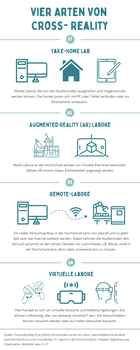
© D2C2/Geishecker
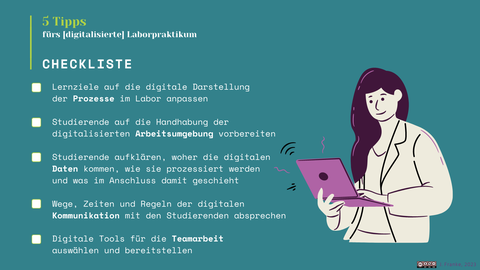
© D2C2/Franke
![Fünf Tipps fürs [digitalisierte] Laborpraktikum Nummer 1: Bereiten Sie die Studierenden auf die Handhabung der [digitalisierten] Arbeitsumgebung vor.I.DEFINIEREN Sie was die Studierenden handhaben müssen II.KOMMUNIZIEREN Sie was verlangt wird, z.B. Experimente im Remote Labor initiieren, Instrumente richtig ablesen III.DEMONSTRIEREN Sie die Handhabungsschritte, die beherrscht werden müssen, mindestens zwei Mal. IV.ÜBERPRÜFEN Sie, ob die Studierenden die Handhabung beherrschen.](https://tu-dresden.de/zill/ressourcen/bilder/copy_of_d2c2/tipps-materialien/Kopie-von-5-Tipps-fuers-digitalisierte-Laborpraktikum-1.png/@@images/7afb8b3b-efab-4cea-ae41-54cc6899e507.png)
© D2C2/Franke
![Fünf Tipps fürs [digitalisierte] Laborpraktikum. Nummer 2: Passen Sie Ihre Lernziele auf die digitale Darstellung der Prozesse im Labor an. Frage 1: Welche Prozesse werden rein digital abgebildet (z.B. chemische Reaktion oder ein Arbeitsablauf)? Frage 2: Inwieweit geht die Sinneserfahrung oder physische Handhabung verloren? Frage 3: Welche Hilfen (z.B. optische Signale oder Markierungen) müssen eingebracht werden, um den Prozess verständlich darzustellen? Frage 4: Welche Lernerfahrungen gehen verloren und welche neuen kommen dazu?](https://tu-dresden.de/zill/ressourcen/bilder/copy_of_d2c2/tipps-materialien/Kopie-von-5-Tipps-fuers-digitalisierte-Laborpraktikum-2.png/@@images/46bebc3e-cf1e-4cb0-b535-061ebeec1635.png)
© D2C2/Franke
![Fünf Tipps fürs [digitalisierte] Laborpraktikum. Heute Nummer 3: Vermitteln Sie, was mit den [digitalen] Daten geschieht. A) Externe Daten: Wie wurden diese erhoben, prozessiert und eingespeist? B) Interne Daten: Wie werden diese digital protokolliert und prozessiert? C) Daten, die das Labor verlassen: Was passiert, wenn Daten geteilt beziehungsweise publiziert oder weiterverwendet werden?](https://tu-dresden.de/zill/ressourcen/bilder/copy_of_d2c2/tipps-materialien/Kopie-von-5-Tipps-fuers-digitalisierte-Laborpraktikum-3.png/@@images/28498e00-5bf9-4ef9-bfc4-39f005aa42a8.png)
© D2C2/Franke
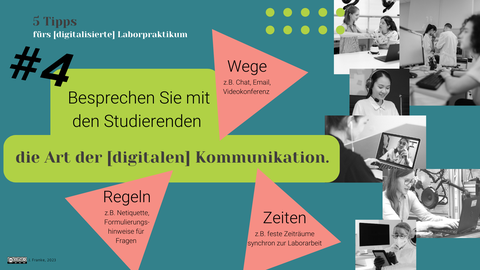
© D2C2/Franke
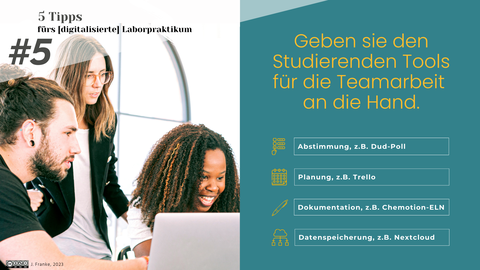
© D2C2/Franke
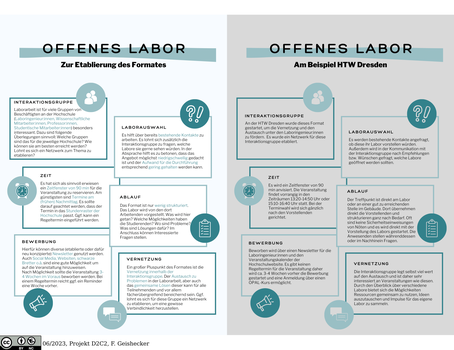
© Freya Geishecker / D2C2
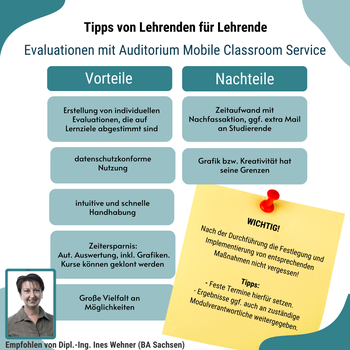
© D2C2/Wegner
Zum Download:
- 4 Arten von Cross Reality nach Terkowsky et al., 2021
- Checkliste: 5 Tipps fürs (digitalisierte) Laborpraktikum
- 5 Tipps fürs (digitalisierte) Laborpraktikum
- Leitfaden zur Etablierung eines Offenes Labores (Veranstaltungsformat)
Wiki: Betreuen von Studierenden im Labor
Betreuen von Studierenden im Labor
In unserem Wiki unter https://tud.link/z08x beschreiben wir Herangehensweisen und Methoden für das Begleiten, Betreuen und Anleiten von Studierenden im Laborpraktikum. Die Inhalte werden monatlich von uns ergänzt und sind gut geeignet für alle, die neu in der Lehre im Labor sind.
Haben auch Sie einen Tipp oder eine Methode, die Sie teilen möchten? Dann kontaktieren Sie . Wir freuen uns auf Ihren Input!
Impressionen unserer Arbeit
Fördermittelgeberin des Projektes
Alle Materialien und Angebote von OPEN LAB entstehen im von der Stiftung für Innovation in der Hochschulehre geförderten Verbundprojekt D2C2.
Mehr zu D2C2 erfahren Sie auf der sachsenweiten Verbundwebseite.
Mehr zu D2C2 an der TU Dresden erfahren Sie unter tu-dresden.de/zill/das-zentrum/projekte/d2c2-1

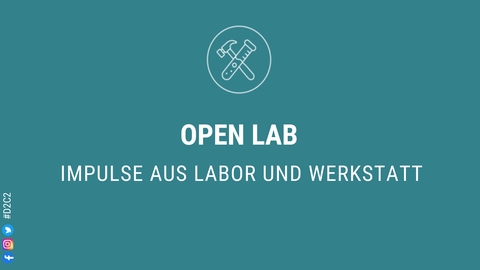
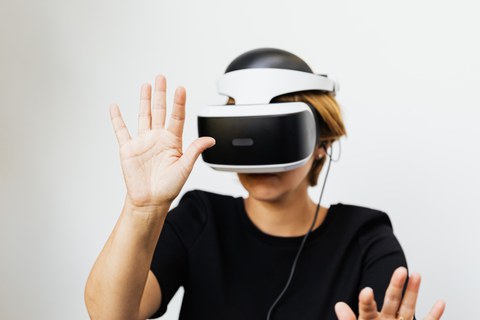
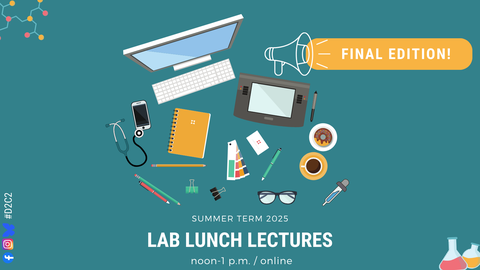
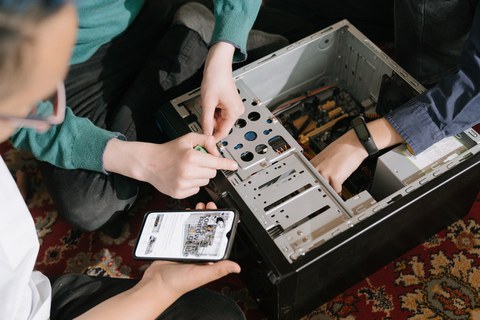
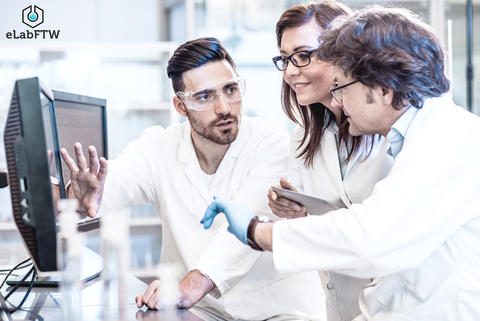
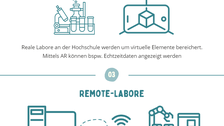
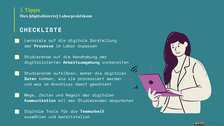
![Fünf Tipps fürs [digitalisierte] Laborpraktikum Nummer 1: Bereiten Sie die Studierenden auf die Handhabung der [digitalisierten] Arbeitsumgebung vor.I.DEFINIEREN Sie was die Studierenden handhaben müssen II.KOMMUNIZIEREN Sie was verlangt wird, z.B. Experimente im Remote Labor initiieren, Instrumente richtig ablesen III.DEMONSTRIEREN Sie die Handhabungsschritte, die beherrscht werden müssen, mindestens zwei Mal. IV.ÜBERPRÜFEN Sie, ob die Studierenden die Handhabung beherrschen.](https://tu-dresden.de/zill/ressourcen/bilder/copy_of_d2c2/tipps-materialien/Kopie-von-5-Tipps-fuers-digitalisierte-Laborpraktikum-1.png/@@images/5e592b8d-ecba-4583-91fd-5ff650b32c0e.png)
![Fünf Tipps fürs [digitalisierte] Laborpraktikum. Nummer 2: Passen Sie Ihre Lernziele auf die digitale Darstellung der Prozesse im Labor an. Frage 1: Welche Prozesse werden rein digital abgebildet (z.B. chemische Reaktion oder ein Arbeitsablauf)? Frage 2: Inwieweit geht die Sinneserfahrung oder physische Handhabung verloren? Frage 3: Welche Hilfen (z.B. optische Signale oder Markierungen) müssen eingebracht werden, um den Prozess verständlich darzustellen? Frage 4: Welche Lernerfahrungen gehen verloren und welche neuen kommen dazu?](https://tu-dresden.de/zill/ressourcen/bilder/copy_of_d2c2/tipps-materialien/Kopie-von-5-Tipps-fuers-digitalisierte-Laborpraktikum-2.png/@@images/4fccb253-c4e7-4780-9703-7cb970284650.png)
![Fünf Tipps fürs [digitalisierte] Laborpraktikum. Heute Nummer 3: Vermitteln Sie, was mit den [digitalen] Daten geschieht. A) Externe Daten: Wie wurden diese erhoben, prozessiert und eingespeist? B) Interne Daten: Wie werden diese digital protokolliert und prozessiert? C) Daten, die das Labor verlassen: Was passiert, wenn Daten geteilt beziehungsweise publiziert oder weiterverwendet werden?](https://tu-dresden.de/zill/ressourcen/bilder/copy_of_d2c2/tipps-materialien/Kopie-von-5-Tipps-fuers-digitalisierte-Laborpraktikum-3.png/@@images/6088d082-82aa-4394-9831-100379ca5206.png)
